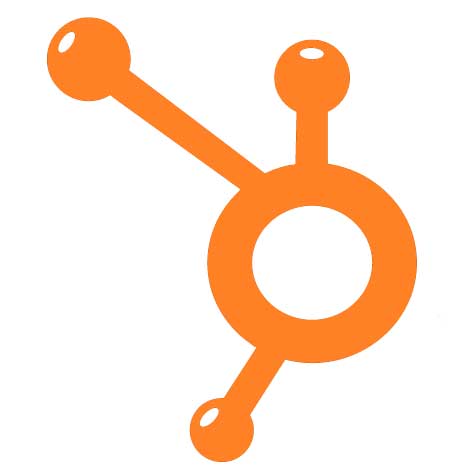Tips for Letting Facebook Tell You What to Do
Guest Blogger - Mike Figliuolo at thoughtLEADERS, LLC
 Many times in our lives we’re faced with situations where we have trouble making a decision. We noodle it over in our heads but never seem to achieve a conclusion. Or sometimes we quickly reach an answer but have a nagging doubt as to whether it’s correct or not.
Many times in our lives we’re faced with situations where we have trouble making a decision. We noodle it over in our heads but never seem to achieve a conclusion. Or sometimes we quickly reach an answer but have a nagging doubt as to whether it’s correct or not.There’s an easy way to resolve these situations: ask Facebook!
No, I’m not saying Mark Zuckerberg knows all (although if you check out the data he collects on you, he kinda does… scary, eh?). What I’m saying is Facebook can be a great platform for market research, gathering opinions on decisions you need to make, and getting new ideas.
But it’s not without its dangers. You can’t simply go into Facebook and blindly accept the opinions of the masses. You have to take any and all input as just that – additional input into the decision YOU ultimately have to make and live with.
If you want to use Facebook successfully to help you make better decisions, there are four things to keep in mind:
Make the Decision Clear
Facebook is not conducive to asking questions requiring a ton of background. First, people don’t read it. Second, the more complex the problem, the more difficult it is for people to understand properly because they lack context. The simpler the better.
If you can break the decision down into a few discrete choices (think polls) that don’t require a ton of context, you’re more likely to get better input. For example, I’m currently trying to decide which cover looks better for my upcoming book One Piece of Paper. There are two options to choose from – left or right (and if you’d like to offer an opinion on which you like better, click here to offer your thoughts).
If you’re trying to make a big decision, try breaking it down into smaller ones and ask for opinions on those smaller decisions. Once you have those opinions on the smaller issues, you can use them to inform the larger problem.
Know Your Audience
There are multiple groups you can seek input from. Getting thoughts by sending a message to your closest friends and colleagues is a lot different than throwing up a question on your company fan page to hundreds or thousands of people you’ve never met. Take the feedback in that context.
Remember – people will layer their own personal biases onto their input. Friends and family know you very well and their experience with you over the years will impact their responses. People who have never met you will be more objective but they lack the context and nuances of what you might really be asking. Be aware of these biases as you evaluate the results.
Evaluate the Feedback Critically
Just because someone offers an opinion doesn’t mean it’s right. And even if the responses overwhelmingly point to one answer, it doesn’t mean groupthink isn’t driving that response (or that you might have worded your question improperly or targeted the wrong group in the first place).
For example – on my book cover decision, the overwhelming majority of people are responding to one choice. One friend of mine offered a different perspective as to why the other choice might be better. He also offered an explanation as to why he thought so. That explanation actually lined up exactly with what my initial decision was as to which to choose.
Ultimately you’re the one who has to live with the decision. Take the feedback for what it’s worth and don’t just do what the masses tell you to do. Think critically and assess it as additional data that helps you make your decision.
Own Your Decision
Again – you have to live with the decision. Your Facebook friends will simply go back to super poking one another and playing Farmville after they tell you it’s a great idea for you to drink 47 shots of tequila at the office holiday party. Ask your self honestly how reliable that data is (remember – they’re on Facebook during work hours so you might want to question their judgment).
Once you’ve taken their opinions into account, determine if you have enough data to make your decision or if you need more. Trust your gut on the call you ultimately make (or even understand if the data are inconclusive that you must seek additional information before making the call).
For me, I’m still not sure which book cover to go with. My gut says one thing. Facebook says another. Both have valid points to make. It’s a tough call but I’m sure it’ll work out in the end.
So what do YOU think?
Facebook can be a useful tool for getting input (and yes, you can use Twitter for the same thing but don’t get me started on managing responses on Twitter). But it’s just that – input. You have to make and live with the final call. So having said all this, have you ever used Facebook to gather information about a decision? What was that experience like? Did it help or harm your decision making? I’d love to hear what you think.
Please put your comments in the box below.
- Mike Figliuolo at thoughtLEADERS, LLC with special thanks from Broadvision Marketing.
Mike is the Founder and Managing Director of thoughtLEADERS, LLC. He is also the author of One Piece of Paper: The Simple Approach to Powerful, Personal Leadership
You can reach him via email at info@thoughtleadersllc.com
Related articles
- Data driven decisions on Facebook (rktalks.com)
- How To Make Your Facebook Wall More Popular (allfacebook.com)

